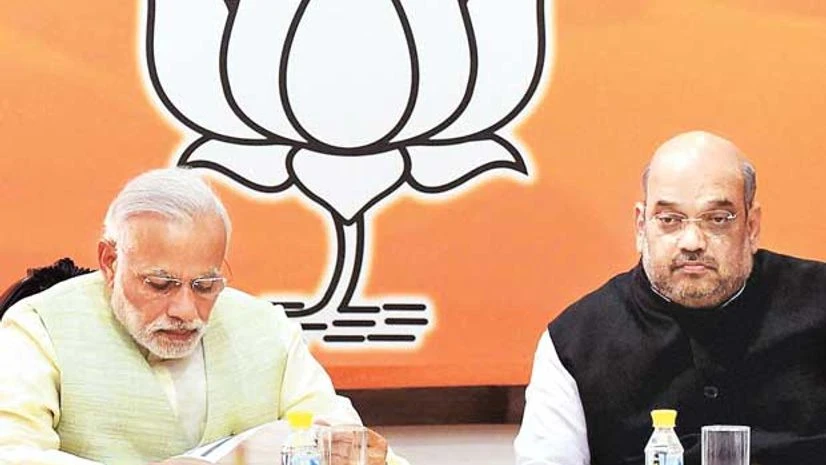Equity strategists at leading brokerages, some of whom donned the cape of Prime Minister Narendra Modi’s fanboys till very recently, are now singing a very different tune.
After the defeat of the National Democratic Alliance (NDA) in the Bihar Assembly elections, the results of which were declared on Sunday, the market’s message to Modi was loud and clear: Work with the Opposition and states to push through key reforms.
Ahead of the 2014 general elections, and even after, many of these strategists at leading foreign and domestic brokerages could only sing paeans to Modi. Now, they are keen to see the prime minister deliver on his promises of economic reform.
Co-operative federalism might have been Modi’s mantra before winning the polls, but the reality on the ground has been different. Analysts expect the Bihar verdict to be a turning point for the Modi government.
In a note, Japanese investment bank Nomura said: “The fact remains that with or without a Bihar victory, the NDA would have had to accelerate its efforts to build consensus with some of the smaller opposition parties to progress on its legislative reform agenda — the Bihar election makes this even more critical.”
The market is concerned about the government’s ability to push through crucial Bills in the Winter session of Parliament. The Monsoon session was a washout in Rajya Sabha, where the NDA does not have a majority and the Opposition resorted to blocking of legislative functioning. After the Bihar polls many suspect the NDA might not have a Rajya Sabha majority before 2019.
The Congress has already derailed several Bills; it is likely get more aggressive. With Bihar Chief Minister Nitish Kumar and Rashtriya Janata Dal chief Lalu Prasad winning, it is apparent that leaders of states also need to be brought on board if the NDA hopes to push through the reforms.
Key economic reform Bills — such as a goods and services tax and a new bankruptcy code — are set to be introduced in the Winter session. Their passage will depend on how much ground the ruling coalition is willing to cede to the Opposition.
“At stake are not only key financial Bills but even certain executive reforms that require the support of the regional parties. The central government does not have the authority to legislate or decide on several economic matters,” said Sanjeev Prasad and Akhilesh Tilotia of Kotak Institutional Equities.
The way forward would be the manner in which the government has gone about with reforms in the power distribution sector. Typically, electorates vote differently in state and national elections, but the fact is that the BJP chose to pit the prime minister against Nitish Kumar, making it a sort of referendum on Modi’s government.
The government can see through money bills, thanks to its majority in Lok Sabha. But it will need the support of the states and the regional parties to push through executive reforms. The success of the government’s reforms agenda will depend on how it plays it.
Kotak Institutional Equities added: “The government may have to rely on co-operative federalism and political management to reinvigorate legislation at the central level.”
The market’s concern stems from the fact that the reforms process has slowed considerably because of a legislative logjam.
While investors and analysts do not expect the government to abandon its reforms agenda completely after the Bihar debacle, the government will also have to address the stress in rural India. Later next year, West Bengal, Kerala and Assam head for polls. Uttar Pradesh elections are scheduled for early 2017. The government will have to address rural stress in the coming months. According to Bank of America Merrill Lynch, there are three takeaways from the Bihar’s outcome.
First, the government will begin to gear up for the all-important Assembly elections in Uttar Pradesh. Second, it will have to address the issue of rural stress by hiking support prices. Third, the foreign brokerage believes, "...reforms will continue to be calibrated at a pace that takes everyone along, although this may disappoint some segments of the markets.”

)
